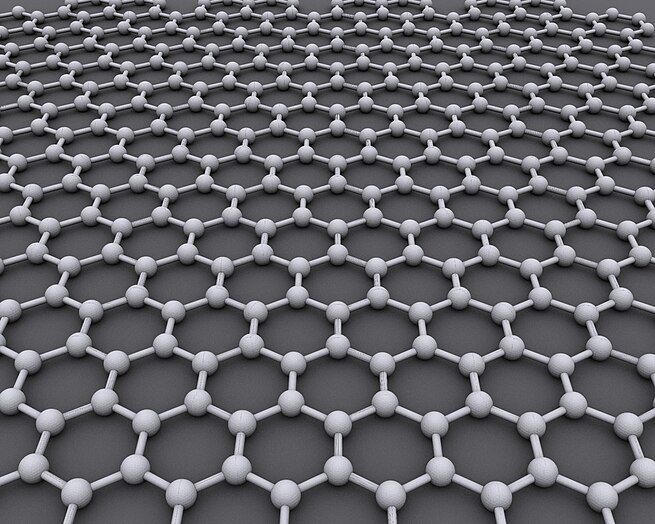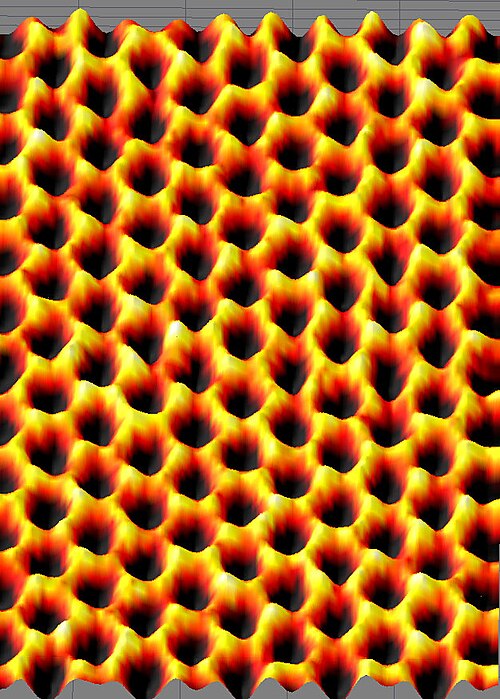Graphenenoun
(organic chemistry) Any polycyclic aromatic hydrocarbon having the structure of part of a layer of graphite.
Graphenenoun
(inorganic chemistry) An arbitrarily large-scale, one-atom-thick layer of graphite, an allotrope of carbon, that has remarkable electric characteristics.
Graphene
Graphene () is an allotrope of carbon consisting of a single layer of atoms arranged in a two-dimensional honeycomb lattice. The name is derived from and the suffix -ene, reflecting the fact that the graphite allotrope of carbon contains numerous double bonds.
Graphitenoun
An allotrope of carbon, consisting of planes of carbon atoms arranged in hexagonal arrays with the planes stacked loosely, that is used as a dry lubricant and in "lead" pencils.
Graphitenoun
Short for graphite-reinforced plastic, a composite plastic made with graphite fibers noted for light weight strength and stiffness.
Graphitenoun
A grey colour.
Graphitenoun
Native carbon in hexagonal crystals, also foliated or granular massive, of black color and metallic luster, and so soft as to leave a trace on paper. It is used for pencils (improperly called lead pencils), for crucibles, and as a lubricator, etc. Often called plumbago or black lead.
Graphitenoun
used as a lubricant and as a moderator in nuclear reactors
Graphite
Graphite (), archaically referred to as plumbago, is a crystalline form of the element carbon with its atoms arranged in a hexagonal structure. It occurs naturally in this form and is the most stable form of carbon under standard conditions.
















